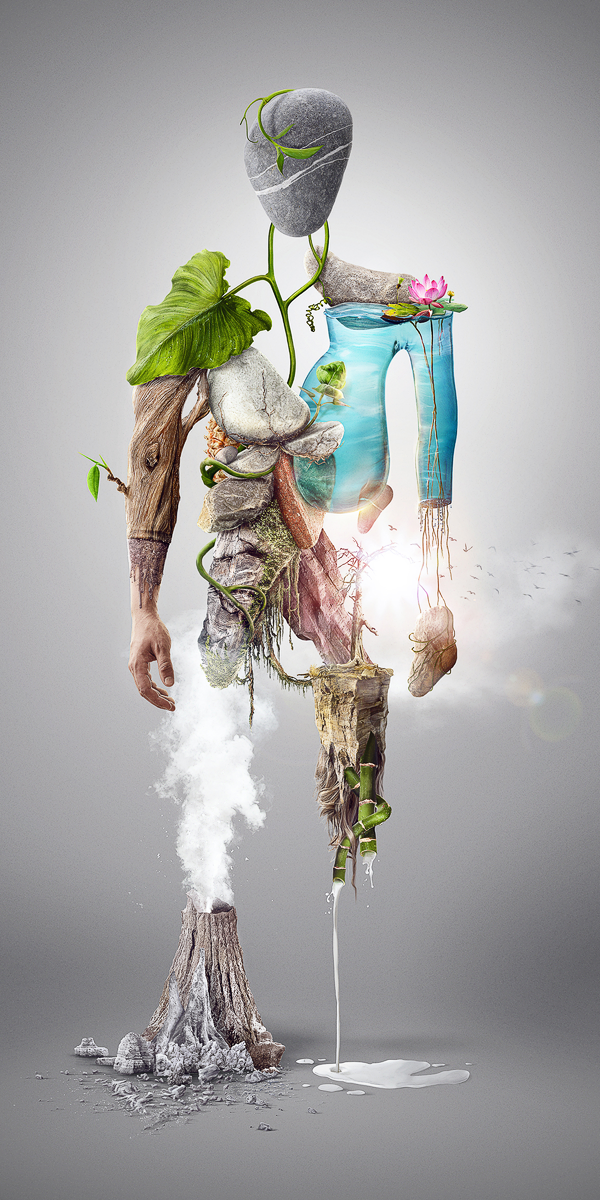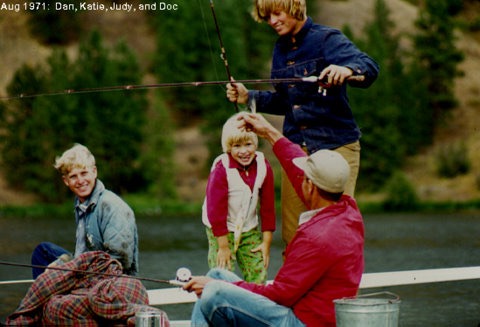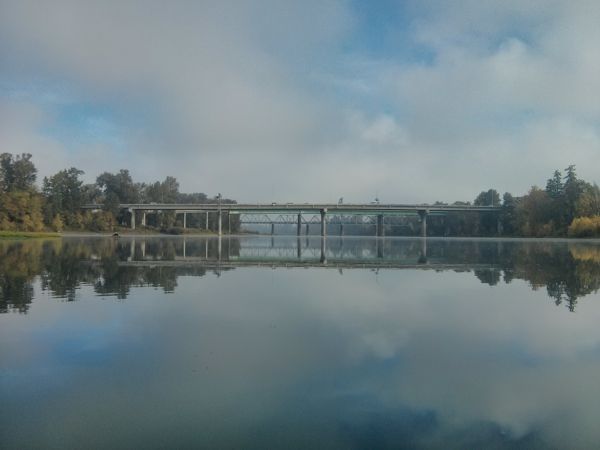WHAT IF? (Part 1: What if we were never separate?)
 July 13, 2019
July 13, 2019 
Nature Man -- Michael Tomaka (Copyright Creative Commons)
The very fact that we have a word for ‘nature’ is evidence that we do not regard ourselves as part of it.
--Paul Kingsnorth
He is
a wilderness looking out
at the wild.
--Wendell Berry
This all began for me with a feeling of unease with the way people use the word “nature.” We go out into nature. We take a break in nature. We struggle against nature. Depending on their orientation, “nature” was something they revered or subdued, tamed or preserved, enjoyed or feared. But in all cases—no matter what their attitude toward nature—their language irrevocably and unconsciously separated “us” from “it.”
There’s “nature”. And then there is “human”.
When I realized what was bothering me, I could then see clearly—oh how lovely our ability to project is!—that I was doing exactly the same thing. I just want to live closer to nature. I want to tap into natural cycles. I feel more comfortable in nature than in the city. But when I tried to do something different—to change my language—I found that I couldn’t. I couldn’t because there were no words (at least not in English) for what I was trying to say. The only difference was that now there was a little pause before I finally spit out the word “nature”. I would like to help to create more……um…...natural systems.
First I thought that what we must need are new words. Wouldn’t new words create a new way of thinking? That was what I started to write this post about several years ago. But as I followed this thought deeper, I realized that I don’t think new words are possible. This split is so deeply rooted in our psyches that we will not be able to come up with new words without changing our story.
Our language reflects and reinforces our assumptions. And this assumption I am circling around is fundamental to who we are, at least in western culture. Somewhere along the line we began to assume that “nature” and “human” were two different things. I am not going to go into the details of how this happened. We look to the shift to agrarian culture, religious texts, Descartes, the Enlightenment, the Industrial Revolution, etc., as though those things were responsible for this shift. I suspect these were the outgrowths of changes that were already occurring inside our own psyches—they were the manifestation of shifts that had already occurred. The important thing now is recognizing where we are.
We believe that humans are fundamentally different from nature.
So rather than proposing new words, I propose a radical new orientation: What if we are in no way, not ever, not at all, never were, and never will be, separate from nature?
Not only are we not separate from nature, but nature is not separate from us. Put simply: there is no separation, no matter how hard you look. There is no line, no break, no division, no us, no them. There is only the world—the whole breathing, living, integrated world in all of its fabulous beauty and terror, with everything in it together, humanity fully embedded in and embraced by it.
If I take this idea to its logical conclusion—that whatever we are is nature expressing itself—this means that everything about us is nature, even our desire to be separate. Our thoughts, our tools, and all of our creations all are the result of nature doing what nature does. Consider this:
Nature is dancing en pointe in a tulle dress.
Nature is building a bridge across a canyon.
Nature is surfing the internet.
Nature is lying drunk under the Aurora Street Bridge.
Nature is circling the planet in an orbiting space station.
Nature is translating a poem from Chinese into French.
Nature is singing itself to sleep.
Our brains, opposable thumbs, language, tool-making, and social activity are all the natural outcome of the upwelling vital force of life on earth. Even our capacity to destroy ourselves and all other life along with us is natural; even our denial, our egocentricity, our violence, our narcissism. Also our love and our wonder. There is nowhere you can point to that is not “nature.”
What is, is.
And everything that is, is connected.
So when we think about coming home, there is nowhere to go. It is closer than close. We are here, already in our own nest. We are it and it is us.
What if nature and human are one?
 Ecology
Ecology 
